
Politics
09:30, 23-Oct-2017
Spain's FM denies ‘coup’ accusation by Catalan leaders
CGTN
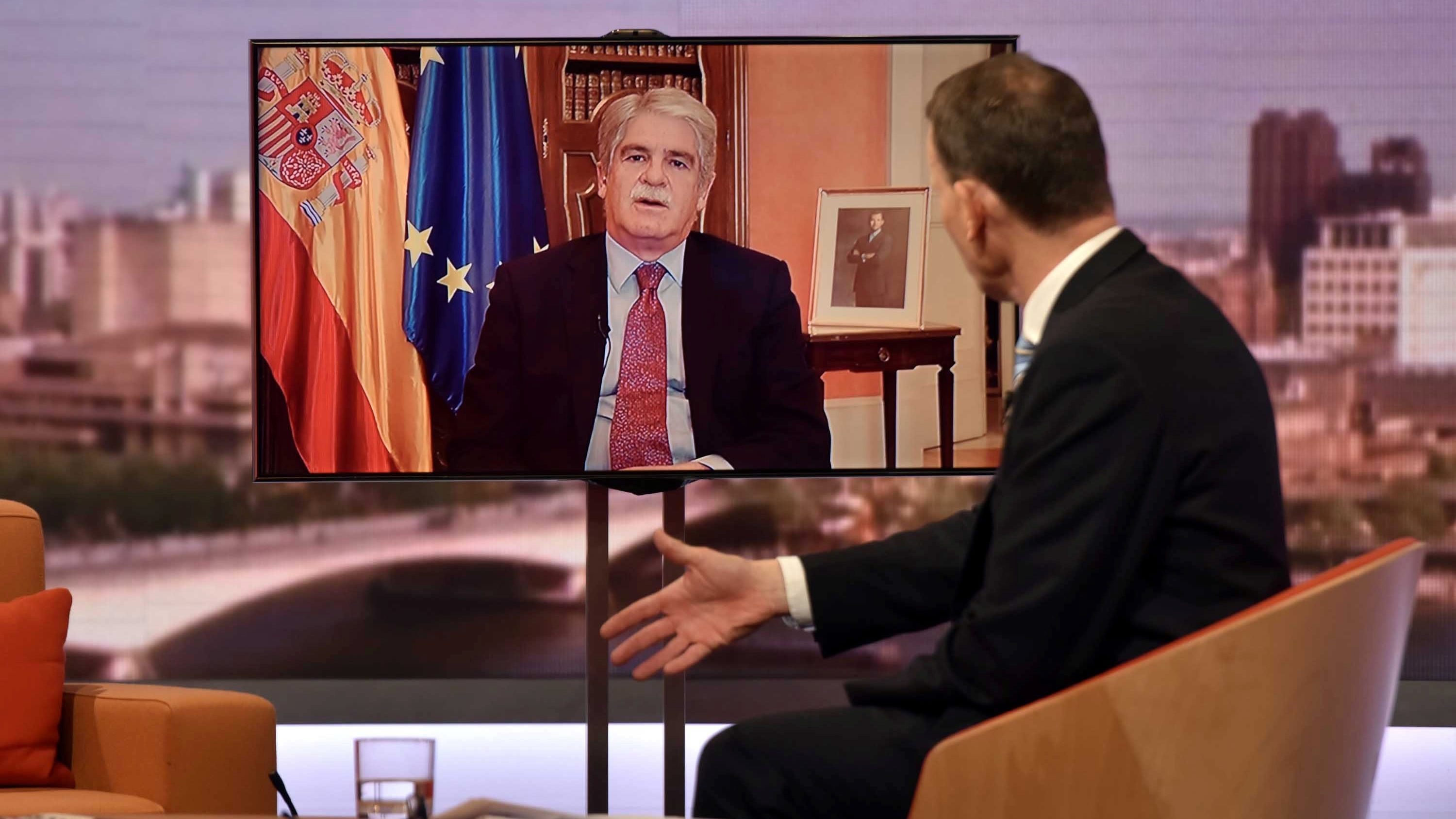
Spanish Foreign Minister Alfonso Dastis on Sunday said he hoped that people in Catalonia would disregard any instruction from the regional leadership if Spain moves to suspend the region's autonomy.
"All the government is trying to do, and reluctantly, is to reinstate the legal order, to restore the constitution but also the Catalan rules and proceed from there," he told the BBC's Andrew Marr Show.
"We are going to establish the authorities who are going to rule the day-to-day affairs of Catalonia according to the Catalan laws and norms ... I hope everyone will disregard whatever instructions they will be planning to give because they will not have the legal authority to do that."
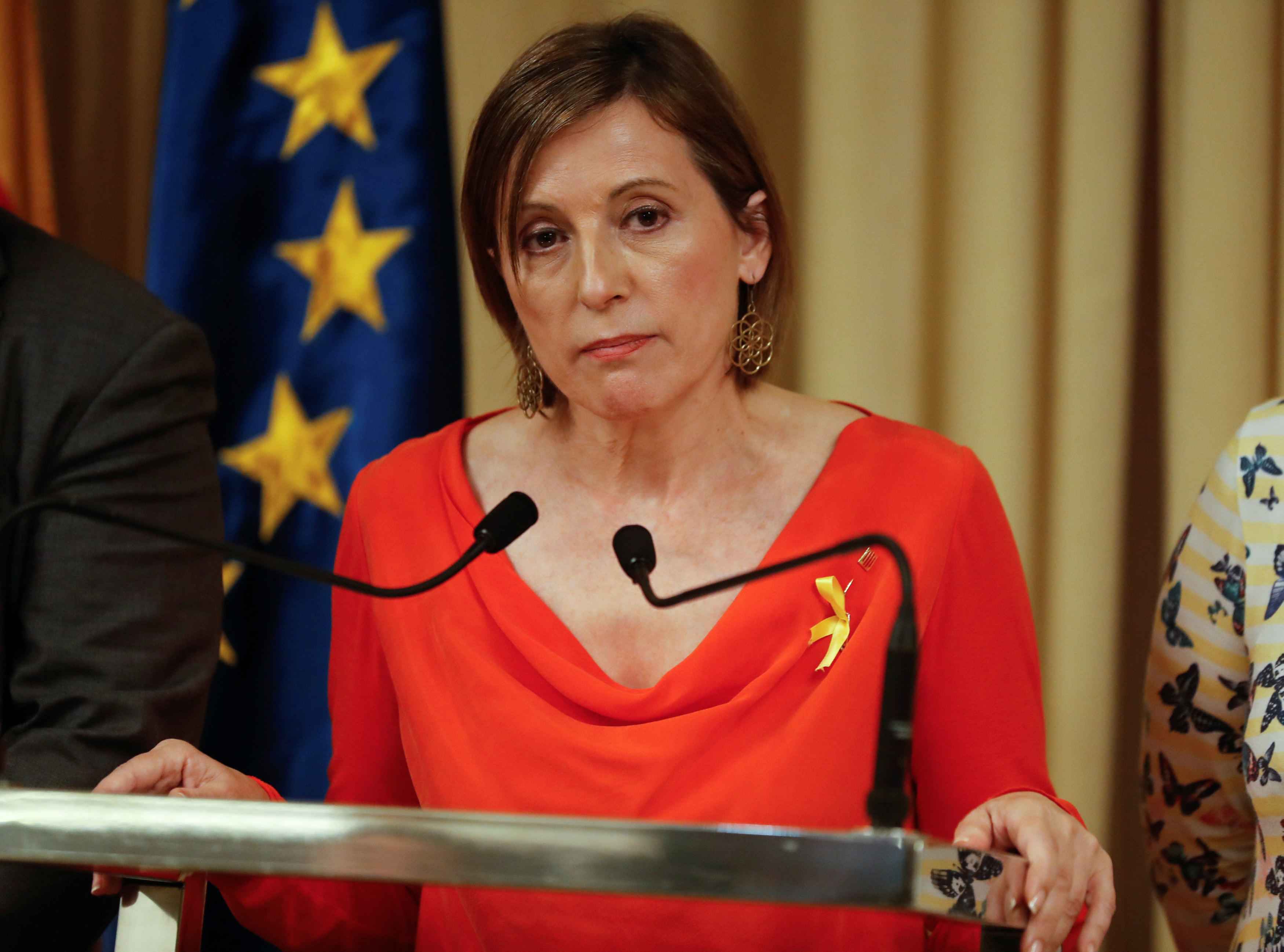
Speaker of the Catalan regional parliament Carme Forcadell delivers a statement in Barcelona, October 21, 2017. /Reuters Photo
Speaker of the Catalan regional parliament Carme Forcadell delivers a statement in Barcelona, October 21, 2017. /Reuters Photo
A day earlier, the speaker of the Catalan parliament Carme Forcadell called the central government’s measure a “de facto coup d'etat.”
Dastis rejected such accusation, saying the government is following strictly the provision of country’s constitution.
A headache for Madrid
On Saturday, Spanish Prime Minister Mariano Rajoy said Catalan leader Carles Puigdemont and his regional executive will be booted out and the central government is taking control of ministries under unprecedented measures.
Catalan government spokesman Jordi Turull called this move “a fully-fledged coup against Catalan institutions.”
Catalan parties are due to meet Monday to organize a full gathering of the regional parliament to debate next steps – a session that could potentially give the ruling separatists another opportunity to declare unilateral independence, which they have been threatening to do since a banned referendum on the issue on October 1.
As nearly half a million angry separatists took to the streets of regional capital Barcelona on Saturday, Puigdemont declared Rajoy guilty of "the worst attack on institutions and Catalan people" since the dictatorship of Francisco Franco.
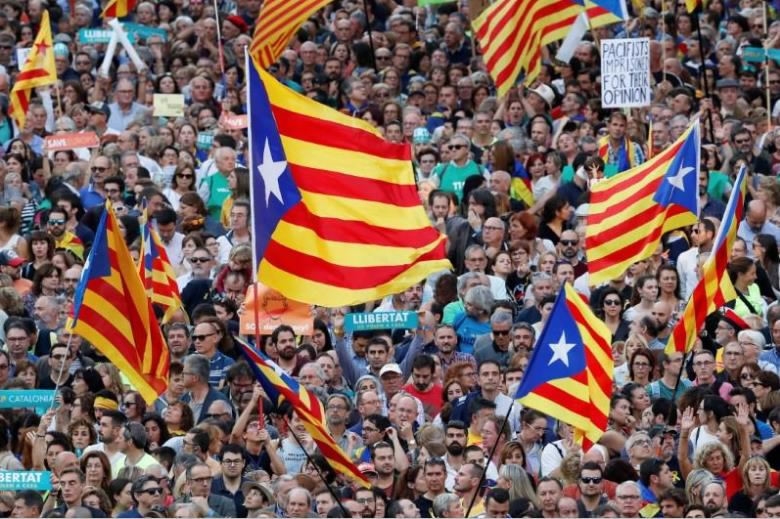
People wave Catalan separatist flags during a demonstration organized by Catalan pro-independence movements Catalan National Assembly and Omnium Cutural, following the imprisonment of their two leaders Jordi Sanchez and Jordi Cuixart, in Barcelona, October 21, 2017. /Reuters Photo
People wave Catalan separatist flags during a demonstration organized by Catalan pro-independence movements Catalan National Assembly and Omnium Cutural, following the imprisonment of their two leaders Jordi Sanchez and Jordi Cuixart, in Barcelona, October 21, 2017. /Reuters Photo
Though Catalans are deeply divided on whether to break away from Spain, autonomy remains a sensitive issue in the northeastern region of 7.5 million people. Catalonia fiercely defends its language and culture and has previously enjoyed control over its policing, education and healthcare.
Spain's government says it had no choice but to use previously untested constitutional powers to seize control of the region, faced with the country's worst political crisis in decades.
"What we are doing is following strictly the provisions of our constitution," Foreign Minister Alfonso Dastis told the BBC.
"If there is a coup d'etat, it is one that has been followed by Mr. Puigdemont and his government."
Catalonia's separatists weighed their options Sunday ahead of a week that will see Spain take the drastic step of sacking the region's government as well as calling fresh elections to try and stop the country breaking up.
What’s the Spain government's next move?
Madrid could take control of the Catalan police force and replace its public media chiefs, while new elections for the regional parliament must be called within six months.
The Senate, where Rajoy's conservative Popular Party holds a majority and his approach to Catalonia enjoys support from other major parties, is set to approve the measures by the end of the week.
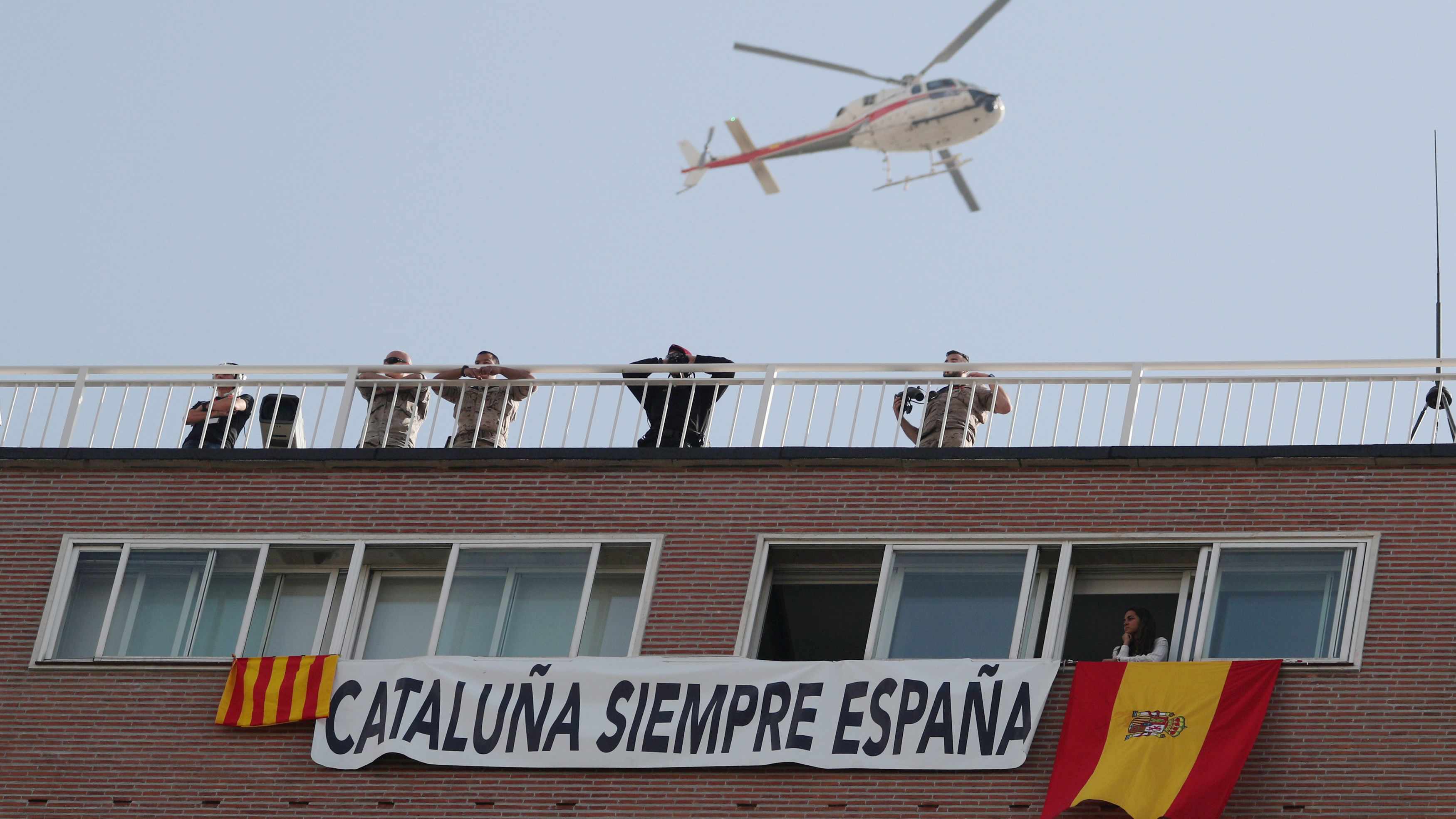
Reuters Photo
Reuters Photo
But political analysts warn that Madrid faces a serious struggle in practical terms to impose control over the region. Potential scenarios include Catalan police and civil servants refusing to obey orders from central authorities.
"What is going to happen if they don't abide by it?" said Xavier Arbos Marin, a constitutional law professor at the University of Barcelona, raising the prospect of the government trying to "take them out by force."
There is fierce debate among experts over whether the government's actions are even legal, he added.
What will happen to Puigdemont?
Asked if Puigdemont will be arrested if he shows up for work, Spain's foreign minister tried to strike a reassuring tone.
"We are not going to arrest anyone," Dastis said, dismissing the idea of the army having to be brought in.
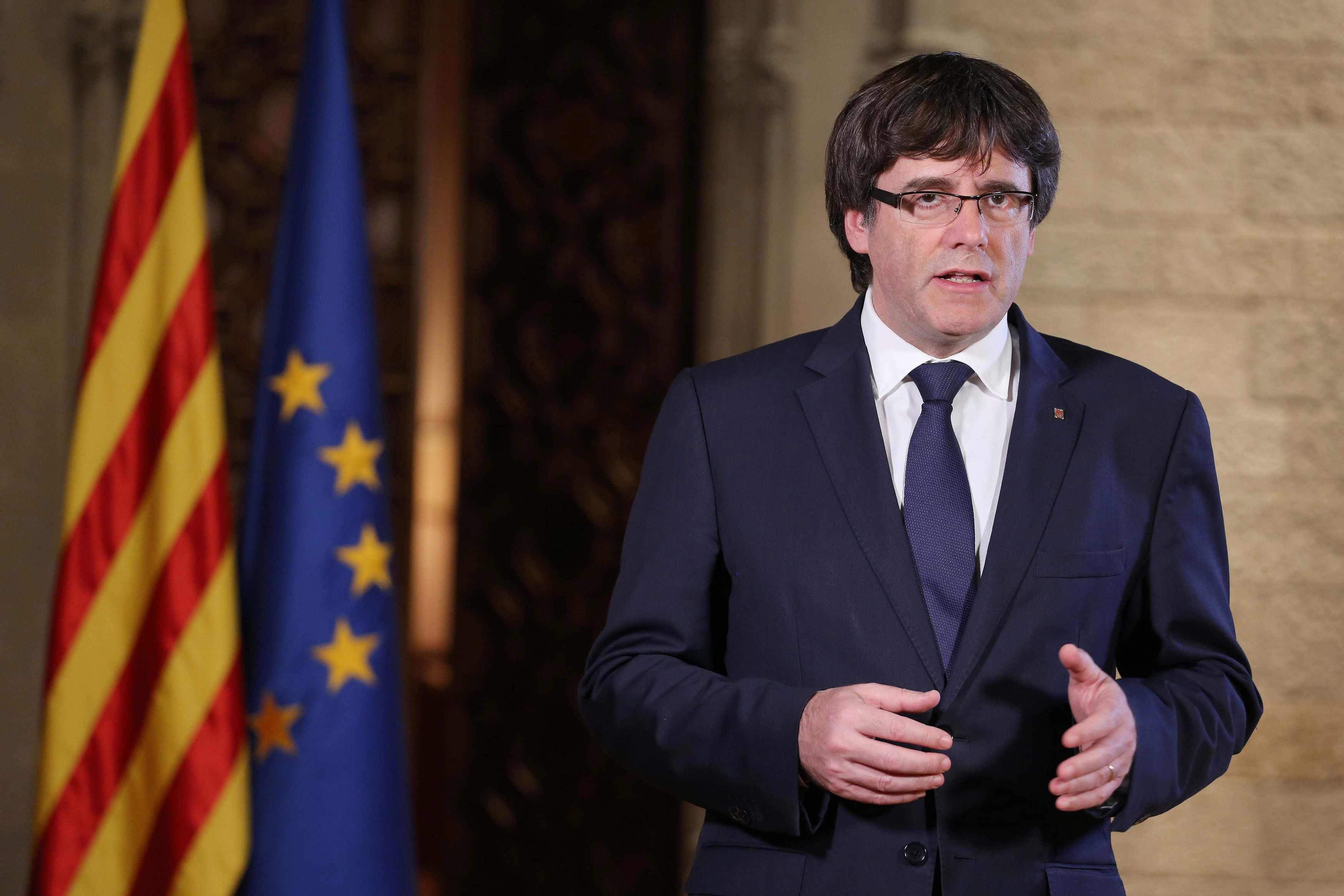
Catalan President Carles Puigdemont gives a speech at the Palau de la Generalitat, the regional government headquarters in Barcelona, October 21, 2017. /Reuters Photo
Catalan President Carles Puigdemont gives a speech at the Palau de la Generalitat, the regional government headquarters in Barcelona, October 21, 2017. /Reuters Photo
But he warned that if Puigdemont's government keeps trying to give orders, "they will be equal to any group of rebels trying to impose their own arbitrariness on the people of Catalonia."
Puigdemont says 90 percent backed a split from Spain in the referendum, but turnout was given as 43 percent as many anti-independence Catalans stayed away from a vote that was declared illegal by the courts.
Opinion polls suggest the wealthy region is evenly split over independence, with separatists saying it pays too much into national coffers but their opponents arguing it is stronger as part of Spain.
The crisis has rattled the European Union that is already grappling with Brexit.
Source(s): AFP
,Reuters

SITEMAP
Copyright © 2018 CGTN. Beijing ICP prepared NO.16065310-3
Copyright © 2018 CGTN. Beijing ICP prepared NO.16065310-3